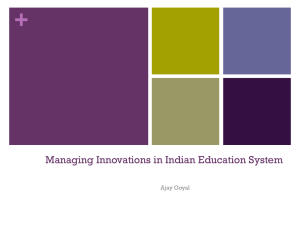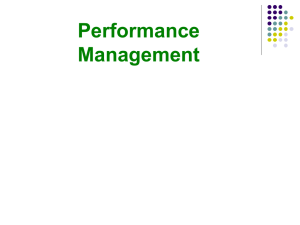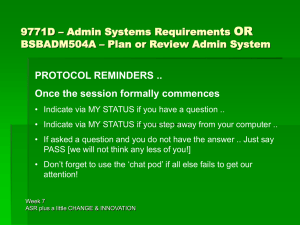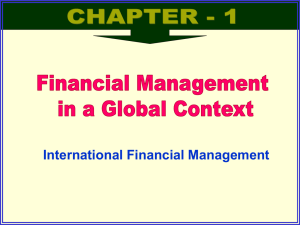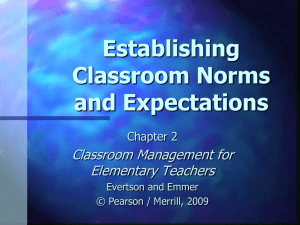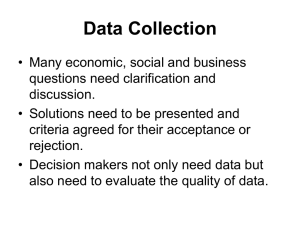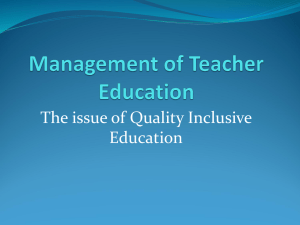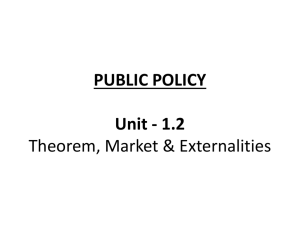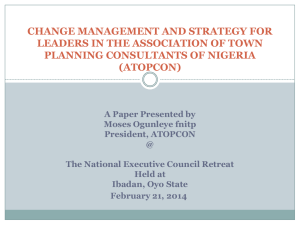Document
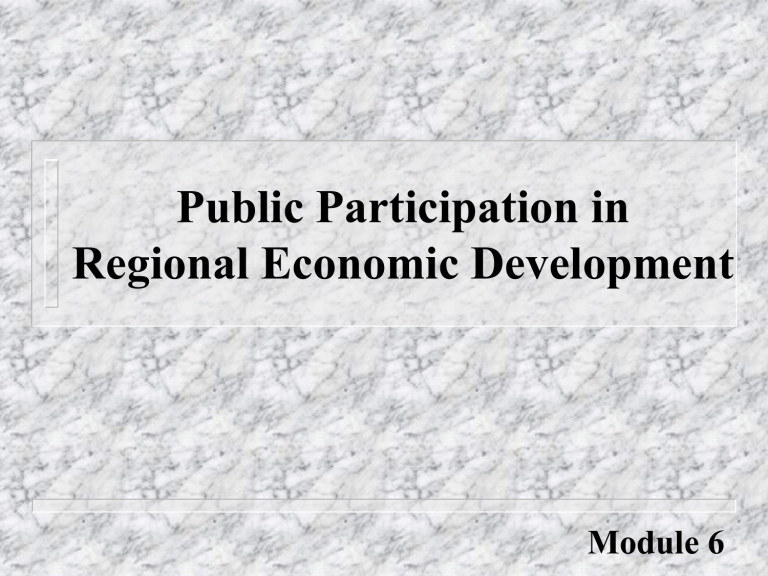
Public Participation in
Regional Economic Development
Module 6
Public Participation in
Regional Economic Development
Objectives:
to specify the role of public participation in regional economic development
to explore degrees of public involvement and expectations for decision-making
Module 6
Objectives (contd)
to identify obstacles to and benefits of public involvement
to identify some public participation methods and show how they can be used
Module 6
Public Participation in
Regional Economic Development
“I know of no safe depository of the ultimate powers of society but the people themselves; and if we think them not enlightened enough to exercise their control with a wholesome discretion, the remedy is not to take it from them, but to inform their discretion.”
Thomas Jefferson, 1820
Module 6
Why Public Participation?
lack of government resources
uncoordinated community development activities
failure of centralized approaches
Module 6
Public Participation as a
Contribution to Development
Buy-in and support are tied to economic benefits or rewards.
Decisions affect and implementation depends on the public.
Outsiders design programs.
Local people are perceived to lack technical and process skills.
Module 6
Public Participation as a Contribution to Development (contd)
Control, direction, and decisionmaking remain with “professionals.”
Technical aspects become prominent.
Organizations are usually externally conceived.
Module 6
Public Participation as a Contribution to Development (contd)
Organizations reflect only part of the community.
There is little empathy with those who should be served.
Local accountability is lacking.
Module 6
Empowerment
Basic Principles:
People are the primary ingredients of development.
We must recognize people’s knowledge and expertise.
The total community is included.
People must feel empowered to control their own destinies.
Module 6
Empowerment (contd)
People’s skills and abilities must be developed through participation.
The role of education and training is recognized.
Expertise is a resource to the people rather than to the product.
People have the ability to determine their own futures.
Module 6
Organizational Qualities
personal control and growth
self-reliance
conformity to local values, ideals, and expectations
Module 6
“Animator”
works in local development
coordinates and facilitates based on people’s wishes
concentrates on the people’s participation in the process
Module 6
“Animator” (contd)
provides focus, forecasting problems through environmental scanning
earns trust and credibility through empathy
Module 6
Participants’ Input 6.1
Module 6
Obstacles to Participation
Power:
Governments traditionally designed and controlled programs.
Limited input resulted in a lack of buyin and support.
Module 6
Obstacles to Participation (contd)
Community beliefs about organizational autonomy:
The community should control design and priorities for development.
The community knows best.
Responsibility is shared without authority and resources.
Module 6
Obstacles to Participation (contd)
Administration:
Accountability interferes with delegation.
Administrators reserve the right to determine priorities.
Planners and administrators are reluctant to concede their practice.
Local involvement adds time.
Module 6
Benefits of Public Participation
recognition of local needs and priorities
recognition of local knowledge and skills
direct input VS prescriptive solutions
more reliable feedback on impacts of initiatives
Module 6
Benefits of Public
Participation (contd)
new insights from the community for adapting programs
lower costs in dealing with local organizations
better design of programs
improved utilization of facilities
cooperation in new program innovation
Module 6
Implications for REDBs
improved organizational structures
added accountability through
Performance Contracts
need for better public education
more equitable sharing of roles and responsibilities
less conflict and misunderstanding
Module 6
Participants’ Input 6.2
Module 6
Methods
Public Meetings:
good for discussing general ideas and approaches
widespread input and perspectives obtained
Module 6
Methods (contd)
Newsletters:
one-way communication
best for dispensing information
Module 6
Methods (contd)
Focus Groups:
effective for obtaining input on specific topics
allow involvement of those most affected
useful for updating sector strategies
Module 6
Methods (contd)
Questionnaires:
recommended for collecting information
limited opportunity for exploring issues
low return rates
lack validity
Module 6
Methods (contd)
Media:
most powerful public participation tool
can become a forum for public discussion
a method of community education
Module 6
Participants’ Input 6.3
Module 6
